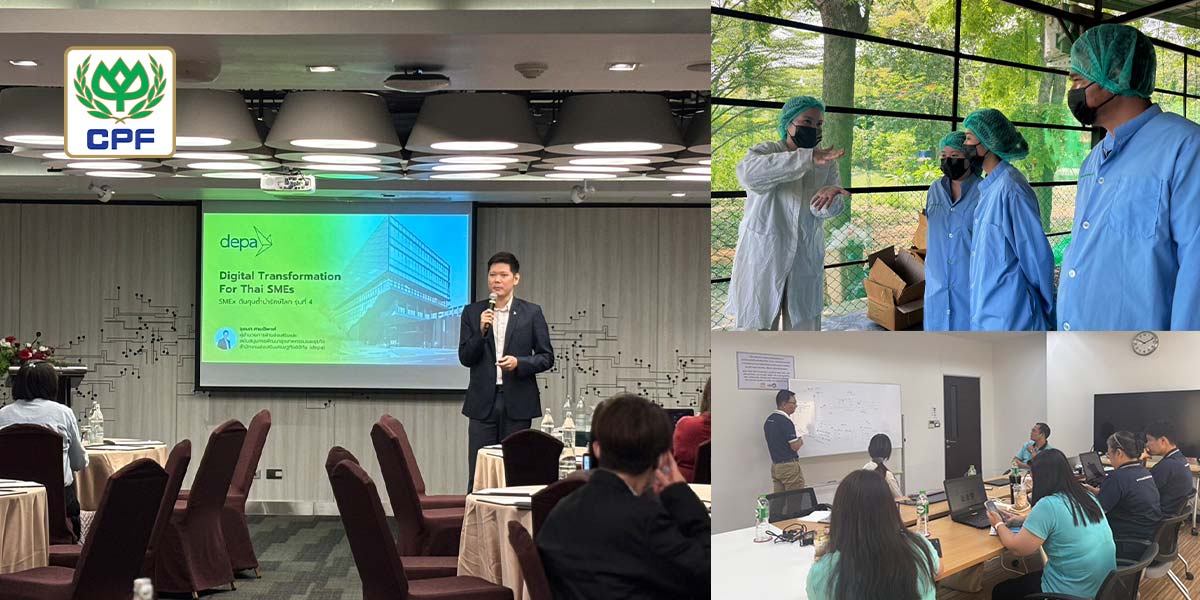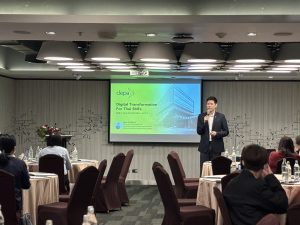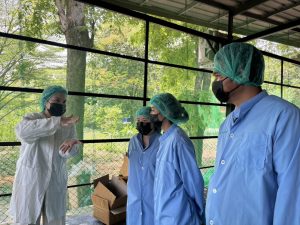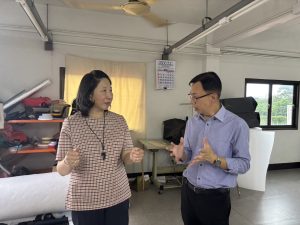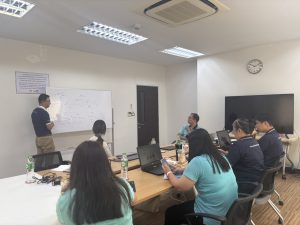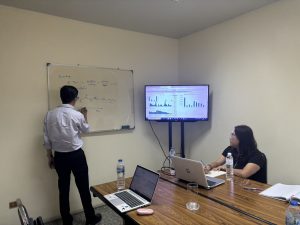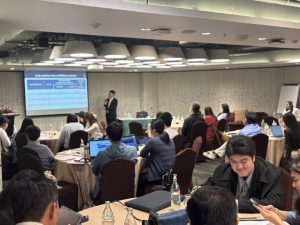Thai food giant launches fourth series of sustainability program to help small suppliers navigate digital transition while reducing carbon footprint
As digital transformation accelerates and environmental concerns intensify, small and medium enterprises (SMEs) worldwide are grappling with unprecedented pressure to modernize operations while maintaining profitability. In Thailand, a agro-industrial and food leader, Charoen Pokphand Foods Public Company Limited (CP Foods) is addressing this challenge head-on through its innovative “SMEx Low-Cost, Envi-Caring” program.
Now in its fourth class, the initiative represents a comprehensive approach to supply chain sustainability, combining technology transfer, environmental stewardship, and business mentorship to help SME partners thrive in an increasingly complex marketplace.
SMEx is part of the “Partner to Grow…Sustainable Growth Together” Project, initiated by CP Foods’ Thailand operations to further develop the capability of its suppliers, covering both SMEs and large businesses. The SMEx project operates through a robust network of institutional partnerships that provide specialized expertise across multiple domains to SMEs. Chulalongkorn University contributes sustainable development knowledge, while the Thailand Greenhouse Gas Management Organization (TGO) assists SMEs in calculating emissions throughout their production chains. The Digital Economy Promotion Agency (DEPA) facilitates technology adoption, and the Office of Small and Medium Enterprises Promotion (OSMEP) provides crucial capital assistance for sustainable development.
“SMEs are integral partners in our mission to deliver products that meet escalating consumer demands for quality, safety, and environmental responsibility,” explained Peerapong Korinchai, Chief Executive of Corporate Engineering at CPF. “The SMEx project leverages our organizational expertise to build SME capacity for business transformation aligned with global sustainability trends, particularly greenhouse gas emission reduction.”
The initiative acknowledges the dual pressures facing modern SMEs: the imperative to digitize operations while simultaneously reducing environmental impact. For many small businesses, these challenges represent significant barriers due to limited resources and technical expertise.
“Carbon footprint management poses a substantial challenge for SME operators, who constitute the backbone of Thailand’s economic engine,” noted Chunlop Santipong, Director of Industry and Business Development Promotion and Support Division at DEPA. “The SMEx project provides essential adaptation tools, enabling these businesses to compete effectively in national and international markets.”
Program participants report tangible benefits across operational efficiency and environmental performance. Napasiri Jaisaeng of Intraphornpack Co., Ltd., a plastic packaging manufacturer, emphasized the critical nature of digital integration alongside carbon footprint management.
“Small businesses must embrace digital technology to enhance efficiency while addressing global consumer expectations and rapid market changes,” Jaisaeng said. “The SMEx project provides both knowledge and adaptive capabilities, enabling us to produce goods that meet CP Foods’ stringent quality, standards, and environmental requirements.”
Similarly, Nattapong Sahachaipattana of Sahachaigijarn Printing Co., Ltd., highlighted operational improvements achieved through program participation. “As a small organization collaborating with CP Foods on food packaging development, the SMEx project creates valuable learning opportunities. We’ve successfully implemented digital technologies to reduce processing time through automation, freeing resources for organizational and personnel development.”
For established suppliers like Eua-Aree Food Products Co., Ltd., which has maintained a 25-year partnership with CP Foods as a seasoning and raw material supplier, the program represents evolution rather than revolution. Company representative Suphawadee Wachiratianachai emphasized the program’s appeal to environmentally conscious next-generation SMEs.
“Today’s SMEs prioritize environmental responsibility,” Wachiratianachai observed. “The SMEx project enables small businesses to operate sustainably while achieving cost reduction and maintaining profitability. Importantly, it provides targeted solutions that eliminate costly trial-and-error approaches.”
The SMEx initiative operates within CP Foods’ broader “Partner to Grow” framework, designed to strengthen SME partnerships while elevating competitive capabilities and promoting social and environmental responsibility. The program’s ultimate objective extends beyond individual business improvement to contribute meaningfully to CP Foods Net-Zero emissions goals through supply chain transformation.
By addressing the intersection of digital transformation and environmental stewardship, SMEx program offers a replicable model for large corporations seeking to build sustainable, resilient supply chains while supporting small business partners in navigating an increasingly complex global marketplace.
The program demonstrates that collaborative approaches to sustainability can simultaneously drive business growth, environmental protection, and technological advancement.

